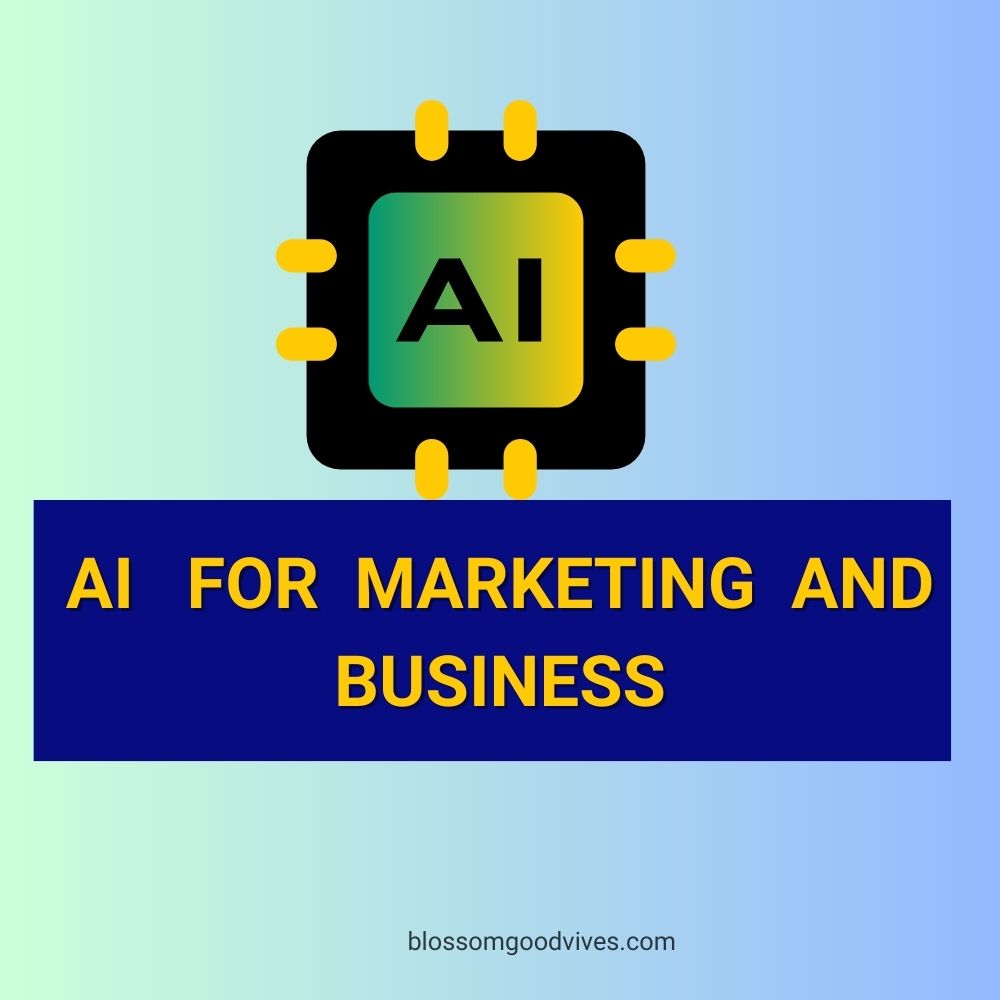
The digital landscape is undergoing a seismic shift, not driven by a new social media platform or algorithm update, but by a fundamental force: Artificial Intelligence. For entrepreneurs, marketers, and business leaders, AI represents more than just a technological advancement; it is the most powerful tool for efficiency, growth, and revenue generation to emerge in a generation.
This isn’t about future speculation—it’s about present-day opportunity. The question is no longer if you should use AI, but how you can harness it to build a more profitable business.
This article explores the practical applications of AI in marketing and business growth and provides a clear roadmap for monetizing this transformative technology.
Part 1: The AI Toolbox – Revolutionizing Marketing and Operations
AI’s true power lies in its ability to automate complex tasks, derive insights from massive datasets, and personalize experiences at an unimaginable scale. Here’s how it’s reshaping the modern business:
1. Hyper-Personalized Marketing that Converts
AI algorithms analyze user behavior, purchase history, and demographic data to create micro-segments of an audience. This allows for:
Dynamic Content: Websites and emails that change their content in real-time to show visitors products or offers they are most likely to buy.
Predictive Customer Journeys: AI can anticipate a customer’s next move, allowing you to serve them the right ad, email, or content piece at the perfect moment to guide them toward a purchase.
Programmatic Advertising: AI automates the buying of ads and places them in front of highly specific audiences across the web, maximizing ad spend ROI.
2. Content Creation at Scale and Speed
Ideation & Drafting: Tools like Jasper or Copy.ai can generate blog post outlines, social media captions, product descriptions, and email newsletters in seconds, based on your keywords and brand voice.
Video and Image Generation: AI platforms like DALL-E 2 or Synthesia can create stunning visual assets and even realistic spokesperson videos from a text script, slashing production costs and time.
3. The 24/7 Customer Service Agent
Customer experience is a key differentiator. AI-powered chatbots and virtual assistants provide instant, accurate responses to customer queries at any time of day. This not only improves satisfaction but also frees up human agents to handle more complex, high-value issues.
4. Data-Driven Decision Making
AI excels at finding patterns invisible to the human eye. It can analyze market trends, competitor strategies, and internal operations to provide insights for:
Pricing Strategy: Dynamically adjusting prices based on demand, competition, and customer profiles.
Supply Chain Optimization: Forecasting demand more accurately to optimize inventory and reduce waste.
Lead Scoring: Identifying which sales leads are most likely to convert, allowing your sales team to prioritize their efforts effectively.
Part 2: The Revenue Engine – How to Earn Money with AI
Understanding AI’s applications is one thing; monetizing it is another. Here are concrete ways to turn AI into a revenue stream.
1. Build and Monetize an AI-Powered Business
This is the most direct path. You can create a business that uses AI as its core product or service.
SaaS (Software-as-a-Service): Develop a niche AI tool. Examples include an AI that writes real estate listings, generates personalized workout plans, or optimizes e-commerce product listings for SEO. The model is typically a monthly subscription.
AI-Enhanced Agencies: Marketing, consulting, and design agencies can integrate AI tools to drastically improve their service delivery. Use AI for rapid ad copy A/B testing, creating initial design mock-ups, or generating data-backed reports. This allows you to serve more clients, faster, and with better results, justifying premium pricing.
E-commerce: Use AI on your store for personalized product recommendations, dynamic pricing, and chatbot-driven sales support. This directly increases average order value and conversion rates.
2. Offer AI-Centric Services and Freelancing
You don’t need to build a complex AI model to profit. You can offer services based on your ability to wield existing AI tools effectively.
AI Prompt Engineering: The ability to write precise, effective prompts for AI text and image generators is a highly valuable skill. Offer this as a service to businesses that want to generate content but lack the expertise.
AI Content Creation: Become a freelance content creator who uses AI to produce high-volume, high-quality blog posts, social media content, and video scripts for clients. You act as the strategic editor and prompt master, ensuring the output is on-brand and high-quality.
AI Automation Specialist: Help businesses automate their workflows. Audit their sales, marketing, or customer service processes and implement AI chatbot systems, email marketing automation, and data analysis pipelines. This saves them money and time, which they will pay for.
3. Educate and Consult on AI
The demand for AI knowledge is exploding. If you learn it, you can teach it.
Create and Sell Courses: Develop online courses or workshops teaching specific AI applications—e.g., “AI for Social Media Managers” or “Using AI for SEO.”
AI Implementation Consultant: Many businesses know they need AI but don’t know where to start. Offer consulting services to audit their business, identify the biggest opportunities for AI integration, and recommend the right tools and strategies.
The Winning Formula: AI + Human Intelligence
It is crucial to remember that AI is a tool, not a replacement for human strategy, creativity, and empathy. The greatest success will come to those who forge a powerful partnership between artificial and human intelligence.
Use AI to handle the quantitative, the repetitive, and the scalable. Reserve your human brain for the qualitative: the big-picture strategy, the creative spark that guides the AI, the nuanced understanding of customer emotion, and the ethical oversight of automated systems.
